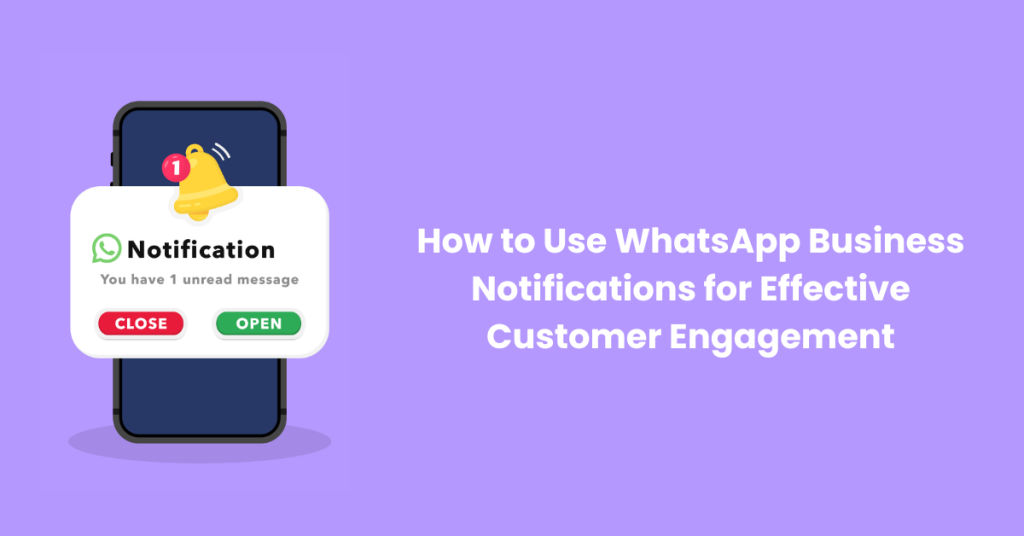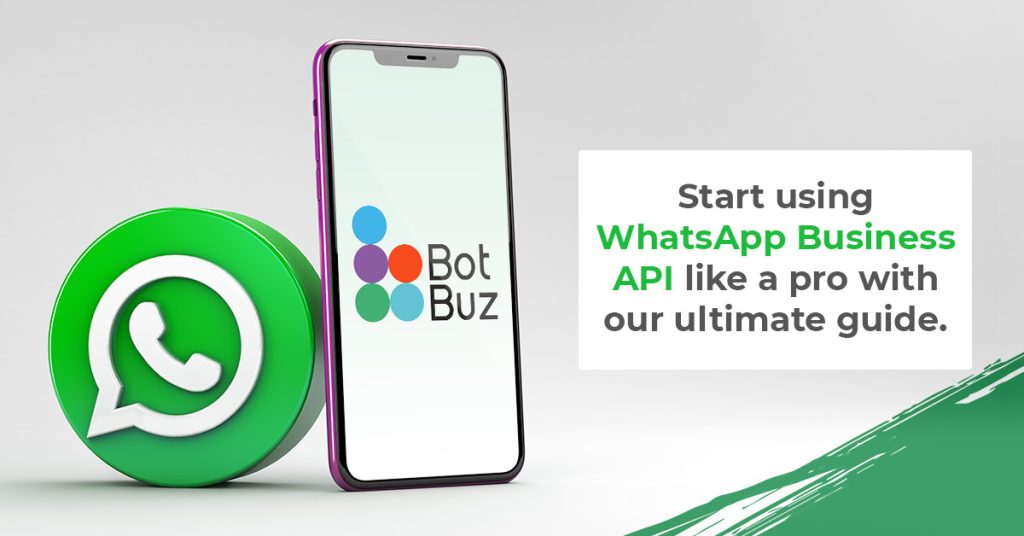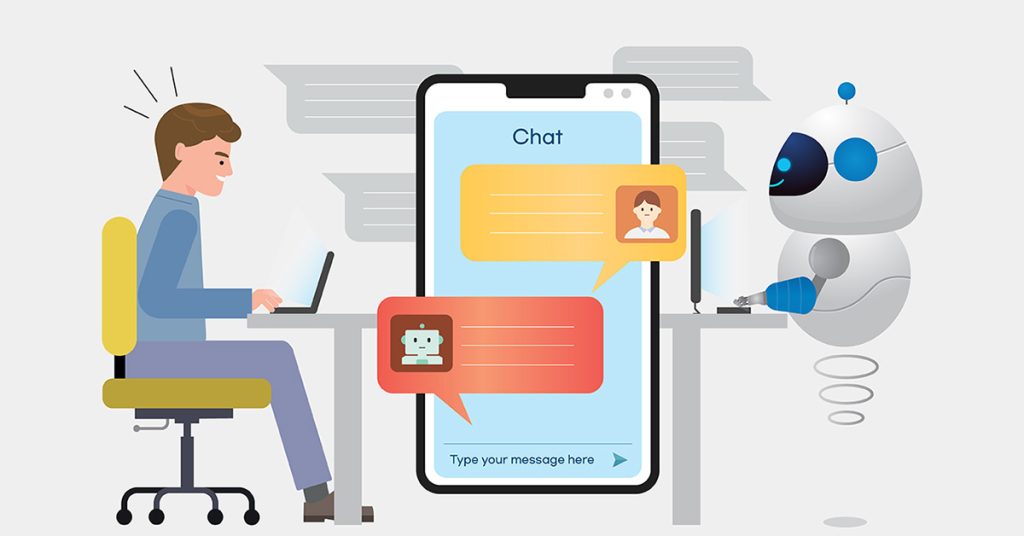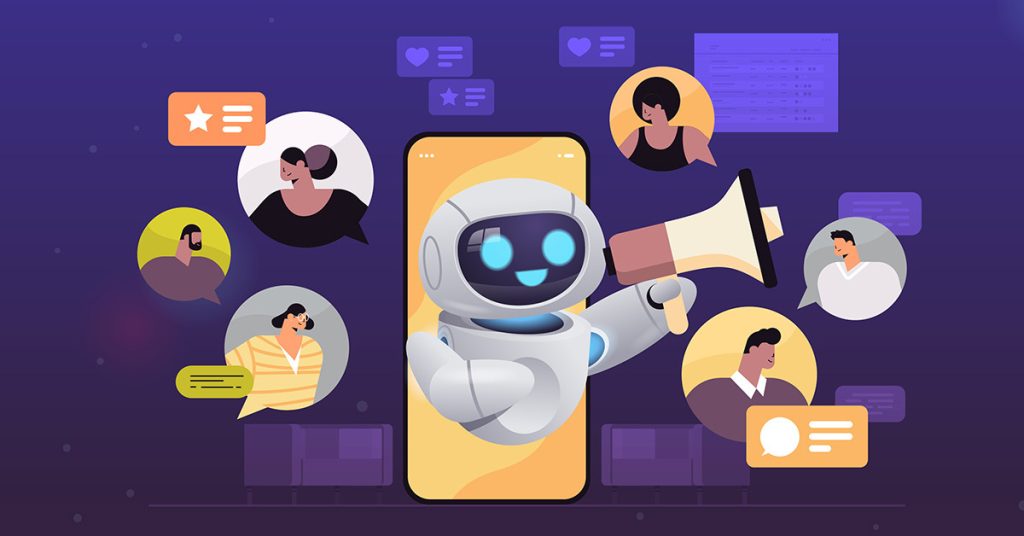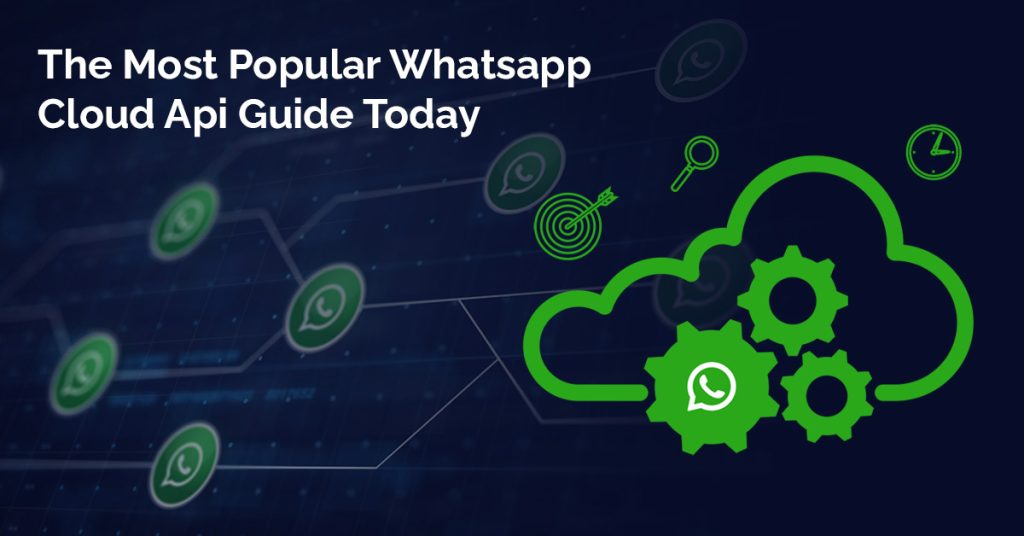- WhatsApp Business Notifications as a Powerful Engagement Tool :
- What Are WhatsApp Business Notifications?
- Setting Up WhatsApp Business Notifications :
- Types of WhatsApp Business Notifications :
- Key Use Cases for WhatsApp Business Notifications :
- WhatsApp Business Push Notification Examples :
- How to Enable and Send WhatsApp Business Notifications :
- Enhance Customer Engagement with WhatsApp Business Notifications Using Botbuz :
- FAQs on WhatsApp Business Notification :
WhatsApp Business Notifications as a Powerful Engagement Tool :
The digital world has completely changed how businesses interact with their customers. Now, more than ever, customer engagement is super important for a company to succeed. It’s not just a nice-to-have; it’s essential for growth and keeping customers happy.
One of the biggest players in this new digital communication landscape is WhatsApp Business. It’s become a go-to platform. So many people already use WhatsApp for their daily conversations. It becomes easy for businesses to connect with customers where they’re already comfortable.
A key feature of WhatsApp Business that really stands out is its notifications. These are pre-approved messages. Businesses can send to customers who’ve agreed to receive them. Think of them as timely alerts or updates that keep customers in the loop.
These notifications are powerful. They allow businesses to send timely and relevant information directly to customers. Whether it’s an order confirmation, a shipping update, or a personalized offer. These messages get delivered instantly. It usually grabs a customer’s attention much more effectively than an email might. This direct and immediate communication is a game-changer. It helps in building strong customer relationships in today’s fast-paced digital economy.
What Are WhatsApp Business Notifications?
WhatsApp Business notifications are pre-approved messages that companies send to customers on WhatsApp. These aren’t just casual chats. They’re structured messages designed to share specific, important information. For a business to send these, the customer must have already agreed to receive them.
The way a business sends these notifications depends on whether they’re using the free WhatsApp Business App or the more advanced WhatsApp Business API. The App is for smaller businesses. It lets them broadcast messages to a limited number of contacts, but it’s more manual. The API, on the other hand, is for larger companies. It needs to send lots of automated & personalized messages.
It is often integrated with their other business systems. With the API, every proactive message sent outside a 24-hour window must be a pre-approved template.
WhatsApp has strict rules about sending these notifications to prevent spam. Businesses must get explicit permission from customers before sending them any messages, especially marketing ones. This means customers have to actively agree, not just have a pre-checked box.
Companies also need to be clear about what kind of messages the customer will receive. It makes it easy for them to stop receiving messages at any time. Businesses have to keep records of this permission. Also ensure that their messages follow WhatsApp’s content guidelines. Otherwise, their ability to send messages might be restricted.
Setting Up WhatsApp Business Notifications :
To set up WhatsApp Business notifications, the company needs more than a regular WhatsApp app. They’ll typically use the WhatsApp Business API. This allows them to send automated, large-scale messages. Also it requires adhering to WhatsApp’s rules.
The main things a business needs are access to the WhatsApp Business API. It is usually through a service provider like Botbuz. Also a dedicated phone number that’s verified by WhatsApp. They also need a verified Meta Business Manager account. It helps to manage WhatsApp presence & an approved display name for their profile. Since there are often costs involved, a payment method needs to be set up too.
Integrating with a platform like Botbuz usually involves a few steps. First, the business signs up with the BSP. Then, they connect their Meta Business Manager account. It allows the BSP to help set up their WhatsApp Business Account. After that, they register and verify their chosen phone number.
A crucial step is submitting Message Templates. The actual notifications like “Your order has shipped!” to WhatsApp for approval before they can be sent. Finally, businesses can integrate the BSP with their other systems like e-commerce platforms. It helps to automate these notifications. Then they can start sending them to customers who have opted in.
Staying compliant is extremely important. Companies must always get explicit permission from customers before sending any messages. All proactive messages need to use pre-approved templates. It fits WhatsApp’s content rules, avoiding anything overly promotional in utility messages. WhatsApp also has content restrictions against illegal or deceptive material.
The platform monitors a business’s quality rating based on customer feedback. A low rating can lead to messaging limits. Businesses must also provide an easy way for customers to opt-out. Also it must handle customer data with privacy in mind. It follows laws like GDPR or India’s Digital Personal Data Protection Act, 2023.
Types of WhatsApp Business Notifications :
WhatsApp Business notifications are special messages. Companies can send to customers, categorized by their purpose. These categories help businesses send the right information and follow WhatsApp’s rules.
Transactional notifications are all about updates related to a customer’s actions. It includes buying something or booking an appointment. For example, a business might send an order confirmation after a purchase. Also a shipping update to let a customer know their package is on its way. These messages are highly valued. They provide timely information and peace of mind.
Promotional notifications, on the other hand, are for marketing. These include messages about offers and discounts. Also exciting product launches, or even reminders about items left in a shopping cart. Unlike transactional messages, customers must explicitly agree to receive these marketing messages. During festivals like Diwali, a business might send out special festive offers.
Customer support notifications help customers with their inquiries or gather feedback. This could be an update on a support ticket a customer submitted. Also a confirmation that an issue has been resolved, or a request for feedback on a recent experience. They ensure clear and efficient service.
Reminder notifications prompt customers about upcoming events or actions they need to take. This includes appointment reminders & alerts for payments due. Also helpful cart abandonment alerts that remind about items still in the online cart. These reminders help customers stay organized and ensure they don’t miss out.
Key Use Cases for WhatsApp Business Notifications :
WhatsApp Business notifications offer various practical applications for businesses. It allows them to engage with customers at crucial points in their journey. These “use cases” demonstrate the power of timely and personalized communication.
Order Updates – Confirmations, Shipping, and Delivery Notifications
For e-commerce businesses, and even local shops taking orders, keeping customers informed about their purchases is vital. WhatsApp notifications excel here. A customer can receive an instant order confirmation. It is right after making a purchase, followed by a shipping update once their item leaves the warehouse. Finally, a delivery notification lets them know their package has arrived. This transparency builds trust and reduces customer queries where timely deliveries are appreciated.
Appointment Reminders – Reduce No-Shows with Timely Alerts
Businesses that rely on appointments, such as salons, clinics, workshops, or service centers can reduce “no-shows” using WhatsApp. Automated appointment reminders sent a day or a few hours before the scheduled time ensure customers don’t forget. These messages can include all the necessary details. It includes date, time, location, and even a contact number for rescheduling. Thus, making it convenient for the customer.
Promotional Campaigns – Sending Personalized Offers and Discounts
WhatsApp is an excellent channel for running targeted marketing campaigns. It provides customers who have explicitly opted in for promotional messages. Businesses can send personalized offers. It is on the basis of a customer’s past purchases or Browse history. They can announce new product launches with appealing visuals. Also sharing exclusive discounts during festive seasons like Diwali or Navratri. These festivals are very important in Gujarat. This direct and personal approach often leads to higher engagement and conversion rates compared to traditional marketing channels.
Cart Recovery Messages – Encouraging Users to Complete Purchases
A common challenge for online businesses is abandoned shopping carts. WhatsApp notifications can be highly effective in recovering these. If a customer leaves items in their cart without completing a purchase, a business can send a friendly cart recovery message. This message reminds them of the items they left behind. It can include an incentive like a small discount or free shipping to encourage them to finalize their purchase. Thus, turning potential losses into sales.
Feedback & Reviews – Requesting Post-Purchase Feedback
Gathering customer feedback is essential for improving products and services. WhatsApp notifications provide a convenient way to do this. After a purchase or a service interaction, a business can send a polite feedback request message. This could include a link to a quick survey or even interactive buttons for a simple rating. Collecting reviews on WhatsApp makes it easy for customers to share their thoughts. It helps businesses to understand customer satisfaction and make necessary improvements.
WhatsApp Business Push Notification Examples :
Some WhatsApp Business push notification examples, tailored slightly to reflect current practices are,
- “Your order has been shipped!” (Transactional – Utility)
This is a classic and highly effective notification. In a business, if a customer just bought a product online or placed a custom order for delivery, this message provides immediate peace of mind. It’s concise, clear, and expected.
Example : “Namaste [Customer Name]! Good news! Your order #[Order Number] from [Your Shop Name] has been shipped! It’s on its way and should reach you by [Date]. Track here: [Tracking Link]”
- “Flash sale: 20% off only today!” (Promotional – Marketing)
This type of notification is great for driving urgent sales. It capitalizes on FOMO (Fear Of Missing Out). It’s crucial that the customer has explicitly opted in for marketing messages. This is especially effective during festive seasons popular in Gujarat. It includes Diwali, Navratri, or Uttarayan (Kite Festival) which might be approaching.
Example : “🎉 Flash Sale Alert! [Your Shop Name] is offering 20% off on all [Product Category] only today! Don’t miss out. Shop now: [Link to Website/Catalogue]”
- “Don’t forget your cart items” (Promotional – Marketing/Utility)
This is a powerful cart recovery message. It re-engages customers who have shown interest but haven’t completed their purchase. It’s a gentle nudge that can significantly boost conversion rates.
Example : “Hey [Customer Name]! Looks like you left some amazing items in your [Your Business Name] cart. Finish your purchase now and grab them before they’re gone: [Link to Cart]”
- “We’re here to help—chat with us now” (Customer Support – Utility)
This notification is about proactive customer service and offers immediate assistance. It can be triggered if a customer spends a long time on a specific product page. Also if their support ticket hasn’t been resolved within a certain timeframe. It highlights accessibility and helpfulness.
Example : “Having trouble with your recent [Product/Service] from [Your Business Name]? We’re here to help! Chat with our support team instantly on WhatsApp for quick assistance.”
- “Leave a review and get 10% off your next purchase” (Feedback & Reviews – Utility/Marketing)
This notification serves a dual purpose. It encourages valuable customer feedback and incentivizes a repeat purchase. Reviews are crucial for building trust and attracting new customers. It is especially for local businesses.
Example : “Loved your recent [Product/Service] from [Your Business Name]? We’d appreciate your feedback! Leave a quick review here [Link to Review Page] and get 10% off your next order with us!”
How to Enable and Send WhatsApp Business Notifications :
Business is to effectively use WhatsApp for sending notifications. They need to go through a specific setup process involving the WhatsApp Business API. This isn’t just downloading an app. It’s a more advanced system designed for larger-scale communication.
The first step is about creating the actual messages, known as Message Templates. A business drafts these messages. It can leave spaces for personalized details like a customer’s name or order number. They also categorize each message. It is either a “Utility” like a shipping update. Also “Marketing” for promotions, or “Authentication” for security codes. These templates then need to be sent to WhatsApp for approval. WhatsApp reviews them to make sure they follow their rules and aren’t spammy. Once approved, the templates are ready to be used.
After template approval, businesses use automation platforms like Botbuz to send them out. This involves linking their existing business systems. It includes online store or customer relationship management (CRM) software, with automation platform. The platform then uses information from these systems. It helps to fill in the personalized details in the WhatsApp templates.
Finally, the business sets up workflows. They are automated sequences of messages based on specific customer actions. For instance, if a customer makes a purchase, the system can be set up to immediately send an order confirmation.
Then, when the order is shipped, a shipping update is sent. Workflows can also include reminders. It includes reminders like forgotten shopping carts. Also requests for customer feedback after a service is completed. These workflows ensure that customers receive the right message at the right time. Thus, enhancing their overall experience.
Enhance Customer Engagement with WhatsApp Business Notifications Using Botbuz :
Botbuz helps businesses to boost customer engagement on WhatsApp. It makes communication smart and easy. It lets companies automate personalized messages to customers. It sends the right information at the perfect moment, like order updates.
The platform also makes it simple to manage message templates. Also the entire marketing campaigns, ensuring all communications are approved by WhatsApp. Businesses can segment their audience to send highly relevant offers. It includes special discounts to specific customer groups.
Crucially, Botbuz supports cross-platform engagement. It means that business can connect with customers. It is not just on WhatsApp, but also on Instagram and Facebook. All of this is done through Botbuz’s no-code interface. It enables real-time support and proactive alerts without needing any technical expertise.
Conclusion :
In today’s digital economy customer engagement is paramount. WhatsApp Business notifications are a cornerstone of this. It offers direct, personalized, and timely communication that builds trust.
The true power of these notifications is amplified by platforms like Botbuz. It automates personalized messaging flows across WhatsApp, Instagram, and Facebook. Thus, simplifying template and campaign management. It enables precise audience segmentation. Also providing both real-time support and proactive alerts through an intuitive no-code interface. This combination empowers businesses to significantly enhance customer loyalty. Also driving growth in the competitive digital landscape.
FAQs on WhatsApp Business Notification :
1.Do I need the WhatsApp Business API to send notifications?
Yes. For automated, large-scale, or integrated business notifications, WhatsApp Business API (Platform) is required. The free WhatsApp Business App has limited functionality & reach.
2. Are WhatsApp Business notifications free?
No, notifications sent via the API are generally not free. WhatsApp uses a “conversation-based pricing” model. It charges per 24-hour conversation based on categories like Marketing, Utility, and Authentication. Service conversations initiated by users are often free for businesses to respond to.
3. Can I send promotional messages through WhatsApp Business?
Yes, but with strict rules. You need explicit user opt-in, must use pre-approved “Marketing” message templates. It must comply with WhatsApp’s policies, including providing an easy opt-out.
4. How do I get template messages approved?
You submit your message templates with placeholders for dynamic content. It is through your WhatsApp Business Platform account or a Business Solution Provider. WhatsApp reviews them for compliance. It typically approves them quickly, though some may take up to 48 hours.
5. Is there a limit on how often I can send notifications?
Yes, WhatsApp imposes tiered messaging limits (e.g., 1,000, 10,000, 100,000, or unlimited unique users in 24 hours). Your tier can increase based on your message quality rating & consistent high-volume messaging. Low quality ratings can lead to reduced limits or temporary restrictions.
